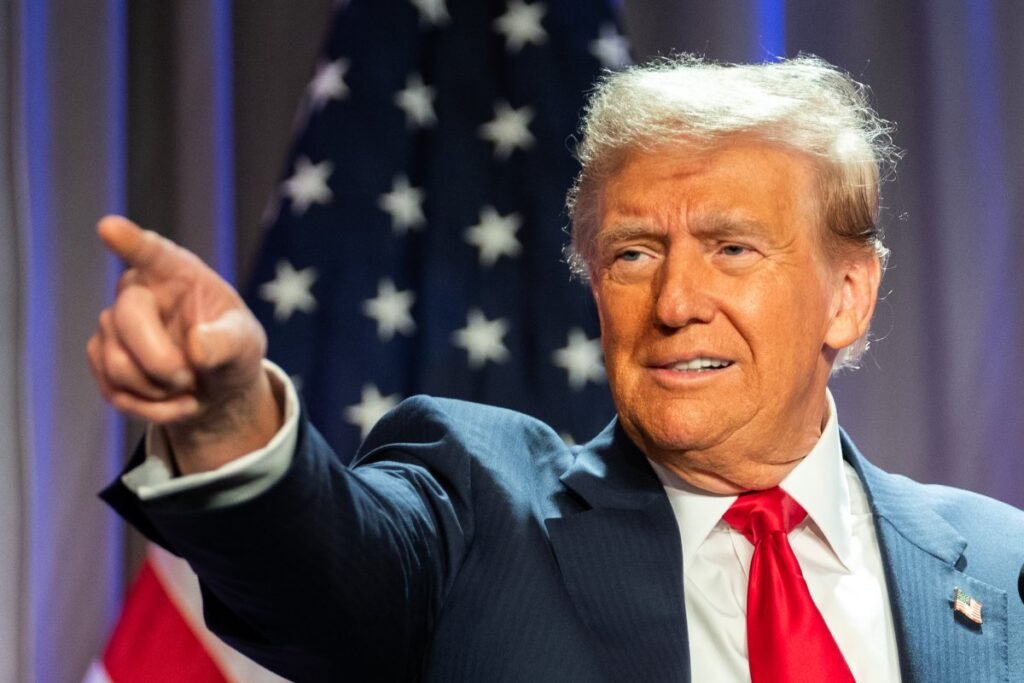In a move that is certain to ignite nationwide debate, former President Donald Trump is set to sign an executive order on Wednesday banning transgender women from participating in women’s sports. The order, provocatively titled “Keeping Men Out of Women’s Sports,” marks yet another instance of Trump leveraging hot-button cultural issues to energize his political base.

Executive Order Targets Title IX Compliance
According to White House officials, the executive action leans on Title IX, a federal law prohibiting sex-based discrimination in education and sports programs that receive government funding. The Trump administration argues that preserving fairness, safety, and privacy in women’s sports necessitates restricting participation to individuals assigned to females at birth.
The order will also ramp up federal oversight, allowing the Department of Education to investigate and penalize schools that do not comply, potentially putting their federal funding at risk. Schools that permit transgender women to compete in female categories may face significant consequences.
A Direct Reversal of Biden’s Transgender Policies
The move represents a sharp reversal of the Biden administration’s stance on transgender inclusion. Under Biden, schools that restricted transgender participation were considered in violation of Title IX protections. Trump’s order seeks to dismantle that approach, pushing for an interpretation that excludes transgender athletes from women’s sports altogether.
Critics argue that Trump’s justification lacks scientific backing. While opponents claim that transgender athletes hold an unfair biological advantage, research remains inconclusive. A 2017 study published in Sports Medicine found no direct evidence that transgender women outperform cisgender women. More recent research suggests that while puberty may create differences, hormone therapy significantly reduces those advantages over time.
Pressure on Sporting Organizations and International Implications
Beyond schools, the executive order turns up the heat on major sporting bodies, including the NCAA and the Olympic Committee. Trump expects these organizations to fall in line with the administration’s stance, even though his authority over international entities remains limited. White House Press Secretary Karoline Leavitt suggested that the order would launch a public pressure campaign to force compliance.
Additionally, the Trump administration plans to review visa policies, ensuring that international transgender athletes are scrutinized before competing in U.S.-based events. This aspect of the order could introduce new legal challenges and diplomatic tensions.
Legal Challenges Loom Large
Like many of Trump’s executive actions, this order is expected to face immediate legal opposition. Civil rights groups and LGBTQ advocacy organizations have already signaled their intent to challenge the ban in court. Legal experts anticipate that the case could escalate to the Supreme Court, where it would test the limits of presidential authority over gender rights and Title IX enforcement.
The Political Calculations Behind the Move
Trump’s decision to sign this executive order aligns with his broader campaign strategy, which has increasingly focused on cultural and identity politics. Throughout his campaign, Trump has emphasized restricting transgender rights, appealing to conservative voters who see the issue as a battle over traditional values.
His rhetoric has intensified in recent years, even going so far as to falsely claim that transgender athletes are taking over women’s sports. During a 2022 rally, he admitted that advisors had urged him not to emphasize the issue, but he noted that it “gets the biggest hand” from the crowd, reinforcing his decision to make it a central part of his platform.
Despite Trump’s aggressive push to regulate transgender participation, data suggests that the issue is not as widespread as his rhetoric implies. NCAA President Charlie Baker testified before Congress in 2023 that out of 510,000 collegiate athletes, fewer than 10 are transgender women. This raises questions about whether the policy is addressing a legitimate concern or merely fueling a politically motivated culture war.
ALSO READ: Judge Slaps Down Trump’s Birthright Citizenship Ban, Citing Blatant Constitutional Violations
With this executive order set to take effect, the debate over transgender inclusion in sports is only intensifying. Supporters argue that Trump is protecting women’s sports from unfair competition, while critics claim that his order is discriminatory and legally questionable.
Does this executive order protect fairness in sports, or is it an attack on transgender rights? What do you think?